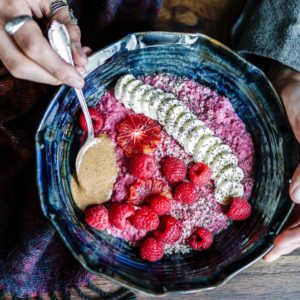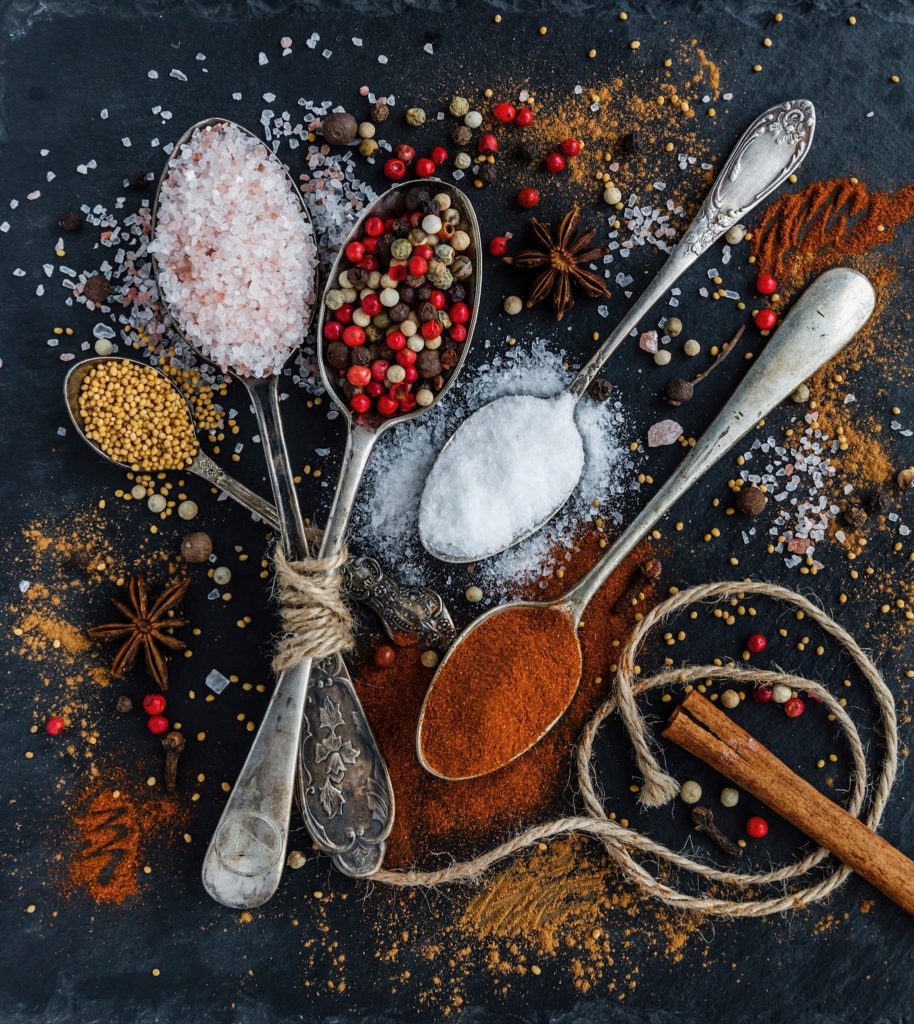Modern life is busy, from the moment we wake up (assuming we slept well which many of us don’t) check our smart tech- which immediately confronts our brain with information from around the globe, we are bombarded with enormous amounts of information. The amount of decisions we need to make and demands for our attention are at an unprecedented level.
This inevitably leads to a population living in a state of low-level chronic stress, and a form of environmental ‘attention deficit’, impacting the capacity we have to show up for ourselves and others, both personally and professionally. Many of us are so used to living in this state that we don’t hear the whispers until they become alarms and burnout or ill health presents.
So how can food and lifestyle not only buffer the impact of modern life, which shows no signs of slowing down, while also ensuring we have energy and creativity to show up at work and play?
The first step is recognising the signs that you are living in low level stress or SOS:
- Do you rely on coffee to get you going in the morning?
- Do you reach for sugar to energise you in the afternoon?
- Do you need alcohol to wind down in the evening?
- Choose high intensity exercise classes because you feel comfortable in the adrenalised state?
- Struggle to switch off, have thoughts racing around your head at the end of the day?
- Struggle to focus and concentrate, need multiple lists and reminders?
- Easily angered, upset or irritated, low capacity to the impact of others around you?
- Often feel stuck, and engage in procrastination?
- Always running late, rushing, feeling like there’s not enough time in the day?
- Clumsy and accident prone?
- Never get sick or catching every cold going?
- Unable to shift stubborn belly fat?

I’m a nutritional therapist so obviously the food we do or don’t choose to eat plays a huge role, but it’s also really important to ensure we start with the BASICS.
- SLEEP Supporting healthy sleep patterns- the brain literally cleans itself while you sleep.
- MOVE Regular movement- ensures circulation to the brain, energy and clears stress hormones.
- LIGHT Day light- exposing your eyes to morning light sets your circadian rhythm for the day.
- BREATHE- the original bio-hack deep belly breathes exhaling longer than your inhale changes your biochemistry and brain structure to lessen the stress response over time.
- FEEL- emotional hygiene, acknowledging and processing our feelings so they don’t present as symptoms.
Why is food so important? What you eat today is how you will FEEL tomorrow. For so long we’re be taught that food is simply fuel, a source of energy. But in order to even convert the food you eat into usable energy we need key nutrients such a B-vitamins. When we live in chronic low-level stress we can dysregulate our energy metabolism leading to imbalances in blood sugar and a roller coaster of highs and lows. Learning to balance your blood sugar will support steady energy throughout the day, calm and stable moods, better stress tolerance and sleep.

1. Balance Your Blood Sugar: Low blood sugar causes the same symptoms as chronic stress- brain fog, poor concentration, mood swings, energy slumps. When your body is low in glucose your brain goes into red alert to let you know that energy is needed or you could eventually die, which diverts your attention from the task in hand and can have you reaching for the biscuit tin at 4pm or wide awake at 4am with a racing pulse and mind- not great for tomorrow’s energy…
2. Blood sugar. Balance the basics:
- Eat a protein rich breakfast
- Don’t skip meals
- Combine protein with unrefined carbohydrates and good quality fats for meals and snacks.
- Avoid stimulants that lead to blood sugar drops: sugar, white carbohydrates, and caffeine are the most common examples.
3. Keep it simple: Following restrictive diets, or complicated food plans can add more stress and drain any energy you might have left, my advice is to keep it simple!
4. Eat the Rainbow: The colours that exist naturally in foods (blueberries, red onions, green leaves, orange root vegetables) are antioxidant protecting your brain and the cells which produce energy, they support blood flow to the brain and gut health which is directly linked to brain health.
Aim to eat as many different coloured plants as you can (fruits, vegetables, herbs, spices, nuts and seeds). I aim for three with each meal, this might seem hard to achieve but if you have berries, nuts and cinnamon with breakfast, a side salad with leafy greens or a spiced vegetable soup at lunch and stir fry with plenty or colours and turmeric or roasted veg and rosemary with dinner you’ve hit your target.
5. Fertilise your brain: Certain foods and lifestyle practices like meditation and social connections, increase production of a protein called BDNF (brain derived neurotrophic factor) that is essentially ‘miracle grow’ for the brain, it protects and promotes the growth of neurons (brain cells). Most of them are also rainbow foods- blueberries, green tea, dark chocolate, oily fish, turmeric- the yellow anti-inflammatory spice.

My favourite brain foods to support energy, focus and concentration.
- Blueberries– shown to improve cognition, metal performance and memory super high in brain protective antioxidants. Buy frozen and blend into smoothie or include in a brain friendly snacks.
- Green tea– contains some caffeine but the stimulant effect is countered by the presence of L theanine which promotes alpha brain waves for calm and focus.
- Dark chocolate– supports blood flow to the brain for attention, concentration and memory, also contains theobromine, a mild stimulant that can enhance mood and productivity, great for an afternoon energy boost without the crash.
- Oily fish like salmon, sardines and mackerel are sources of omega 3 fatty acids, the brain is a fatty organ and is made of the fats you eat, so eating good fats ensure good brain function, and lowers inflammation. Eggs, walnuts and chia seeds also provide some.
- Beetroot a source of nitrate which the body converts to nitric oxide supporting blood flow and stamina. Roast, juice or grate raw into rainbow slaw with carrots and shredded cabbage.
- Eggs protein for stable blood sugar and a source of choline which is needed for acetyl-choline the neurotransmitter that’s involved in memory, attention and arousal. Try scrambling with turmeric for even more brain benefits.
Maya Oakley is a Nutritional Therapist and Medical Herbalist. She works with one to one with patients to optimise health and resolve chronic conditions, as well as running workshops and talks on all things nutrition and wellbeing.
To find out how Bright can help you and your organisation discover more about the impacts of chronic stress on your health and performance, as well as learning how to incorporate enjoyable and sustainable practices to support your health, say [email protected]


